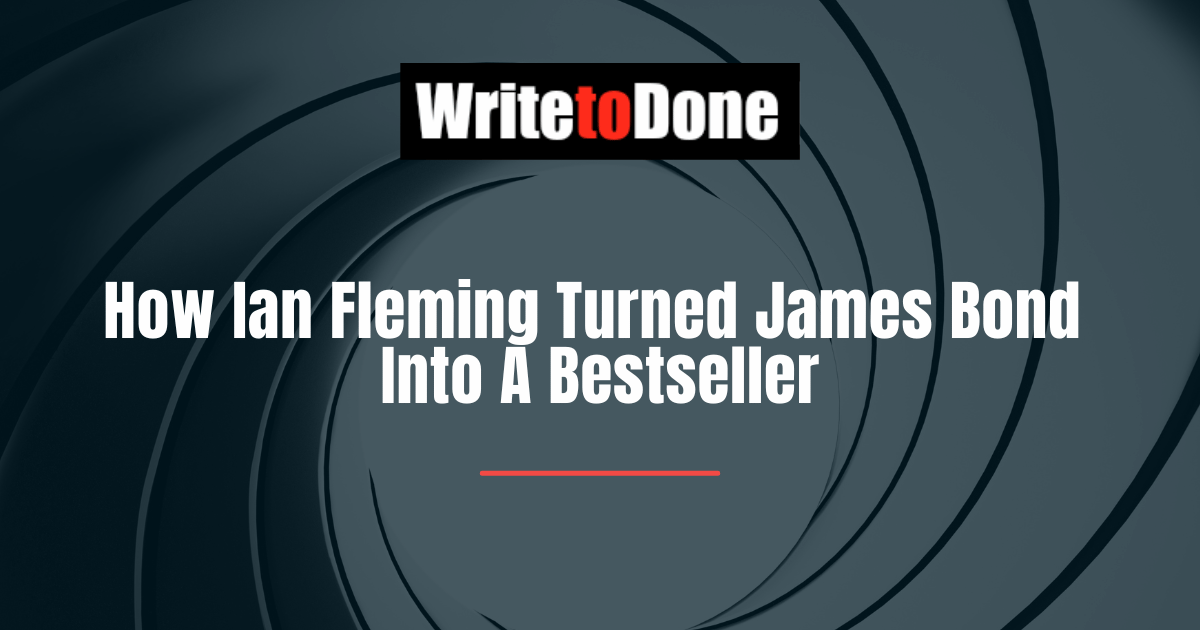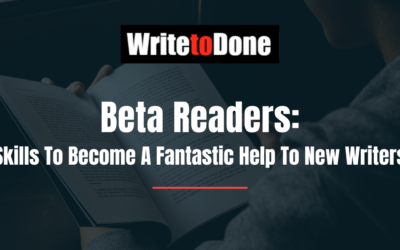What makes the work of a novelist sell well?
Genius, good connections in the publishing world – or just old-fashioned, hard editing?
Some clues come from Casino Royale, the first James Bond novel. Ian Fleming’s original draft was put on show earlier this year to mark the 60th anniversary of the novel’s publication.
It did not spring immaculate from his typewriter. Nor did Fleming have any publishing connections or prior experience in novel writing.
He succeeded – the novel went into three print runs in its first year alone – because Casino Royale was immensely readable. Why? As the manuscript shows, Fleming edited his first draft massively.
We can all learn from his copy-editing process as we strive for best-seller stardom. Here are just a few examples taken from one passage.
1. He replaced ‘flat’ or literary constructions with simple words, short sentences and active verbs.
The first draft read:
Bond had had a feeling that this might be the CIA man and his impression was confirmed as they strolled off together towards the bar.
That became:
Bond had had a feeling that this might be the CIA man. He knew he was right as they strolled off together toward the bar.
The changes are small but one long sentence is now broken in half and the second one has acquired a terse verb: ‘He knew he was right.’
In this passage, we also read:
Bond was pernickety in all he ate and drank.
Fleming struck out that very British term ‘pernickety’ and wrote:
Bond was always meticulous about what he ate and drank.
Even then, Fleming had his eye on a wide readership. The novel had to work on both sides of the Atlantic.
2. He split up passages of dialogue to add vitality.
In the first draft, Fleming wrote:
“A Dry Martini,” he said. “One in a champagne goblet. Three measures of Gordon’s, one of vodka.”
In his second draft, Fleming inserted an extra line of dialogue.
“A Dry Martini,” he said. “One in a champagne goblet.”
“Oui, monsieur.”
“Just a moment, now listen. Three measures of Gordon’s, one of vodka.”
Just seven extra words but the passage has gained vitality. And is there a hint of conflict with the barman? (“Just a moment, now listen.”)
3. He simplified the characterization.
In the original draft, Fleming had the CIA man introduce himself to Bond with the words:
“My name’s Felix Leiter. Glad to meet you.”
Bond replies: “Mine’s Secretan.”
Fleming had intended to give Bond an assumed name ‘Secretan’ when on covert operations. But he realized this might confuse the reader. So he deleted ‘Secretan’ and inserted ‘Bond’. The rest is history.
He ruthlessly cut everything that might distract or confuse the reader – at least, everything that did not have a plot purpose.
4. He wrote in the ‘voice’ of his character.
Fleming also changed his style to reflect that of his character.
The first draft was written in Fleming’s own ‘voice’ – that of a cerebral university man, educated at Eton and Sandhurst. That wouldn’t do for Bond, a man of action, not words. So the draft was rewritten in plain words, short phrases and loose constructions that made sense quickly.
For example, the sentence (quoted below) in Casino Royale is ungrammatical. As a senior civil servant, Fleming would not have allowed himself to write so badly; but we forgive Bond. Grammar was not among his strengths.
He was quite honest to himself about the hypocrisy of his attitude towards her. As a woman, he wanted to sleep with her but only when the job had been done.
‘As a woman’ is a dangling modifier. Taken literally, it implies that Bond is a woman. Would the average Bond reader notice? Probably not. So Fleming was unconcerned about it.
That’s a very simple 4-step process – copy editors know it well – but it offers us all a quick way to improve our work, whatever genre we write in. It’s also a lesson we can study when we’re tempted to play with words and strut our stuff. Fleming hid his cleverness behind a clear plot structure. The language is invisible. Its focus is on telling the story – or rather, letting the story tell itself.
It’s interesting to note that Fleming had “meager financial expectations” of the income he might gain from his first novel. He protested when his publisher Jonathan Cape wanted to sell Casino Royale too cheaply. “I am not in favor of reducing the price of the book to 10/6d [less than a dollar]. I think it would be a mistake for your first thriller to seem to be given away.”
But the publisher cut the price. And the Bond phenomenon was born.
That’s another message worth remembering today, when self-publishing authors debate the wisdom of selling an ebook at 99 cents versus, say, $9.99. If a debut novel is good enough to stoke a vast demand, it probably doesn’t matter how low it’s priced. The profit is in the after-market, the follow-on sales.
James Bond went on to feature in 30 subsequent novels, 14 of them written by Fleming himself. The total Bond franchise revenue – from novels, films and merchandise – is now listed as $7,979 million.
Did a simple copy-editing process achieve all that? Of course not. But it made a very good start…
Do you find that writing the first draft is hard work but revision is fun? Or the other way round? Is it difficult for you to change your own style to write in the ‘voice’ of your characters? Or do such role switches come naturally to you? Please share your thoughts in the comments below!

















